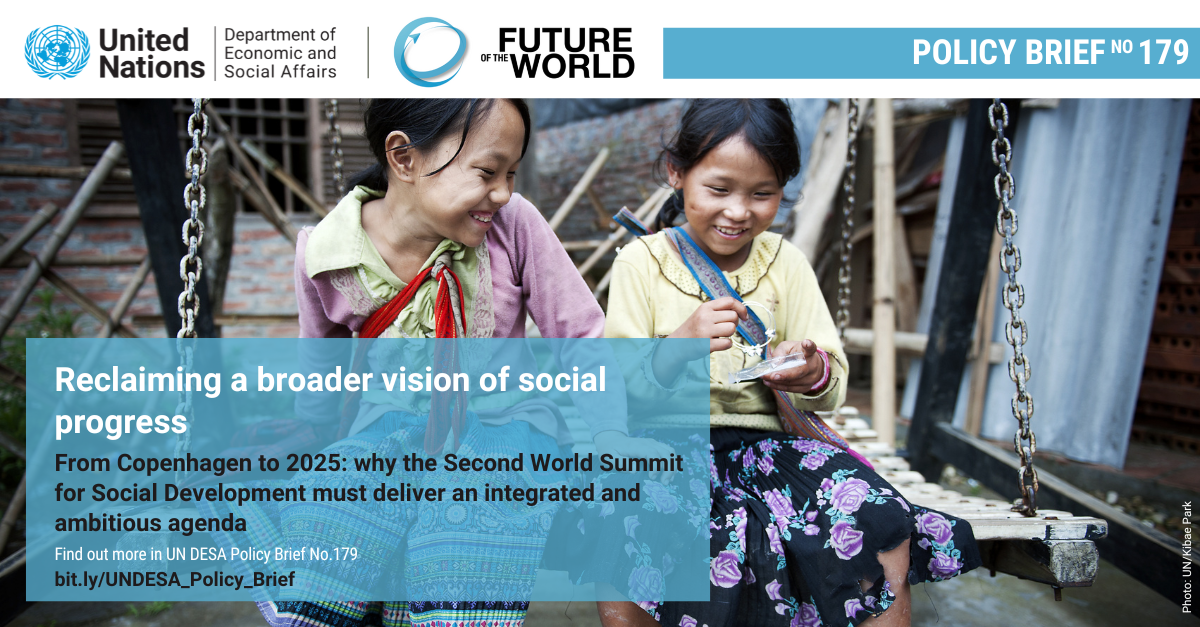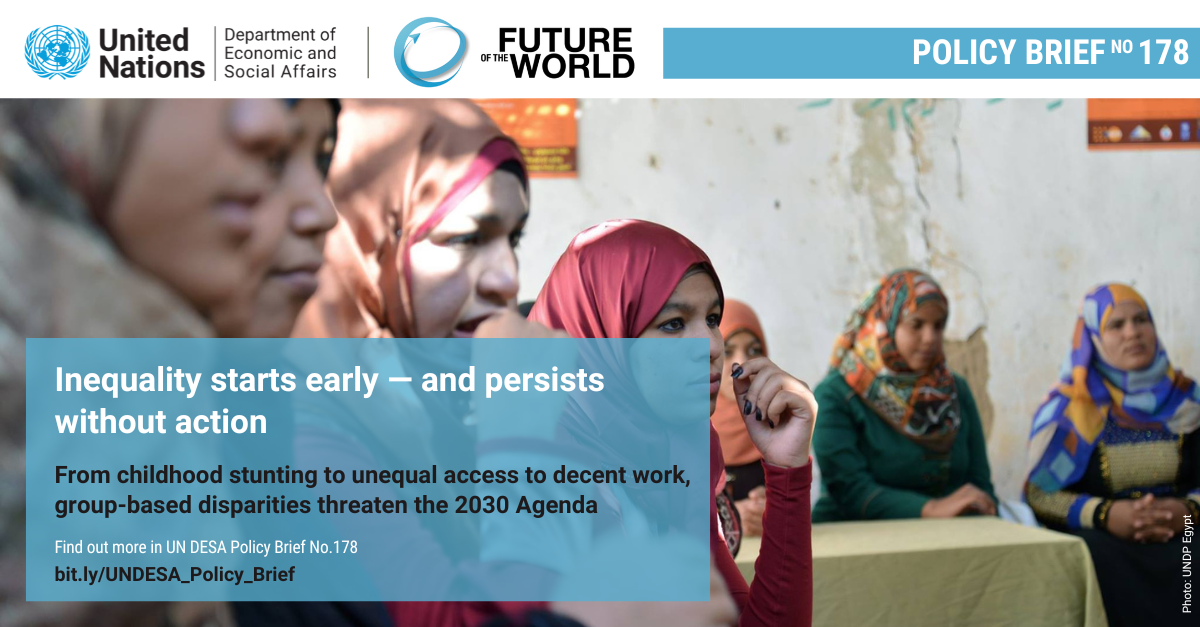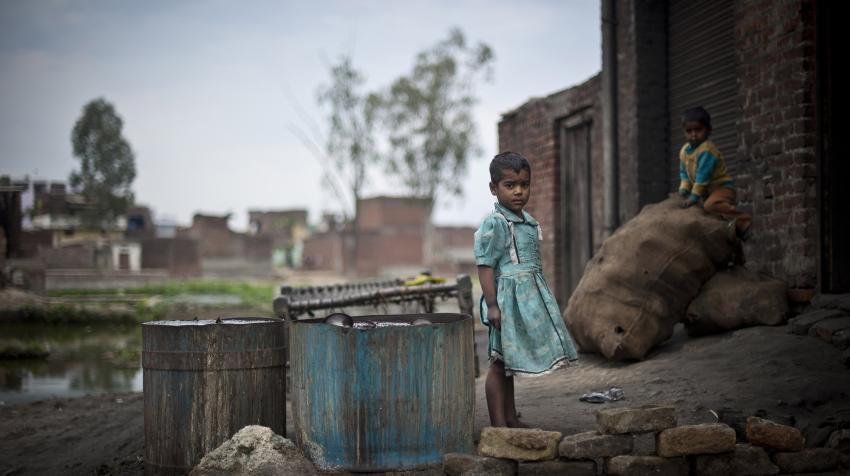Publications
Displaying 1 - 3 of 3
Policy Briefs |
This UN DESA policy brief revisits the landmark 1995 World Summit for Social Development in Copenhagen, which marked a pivotal moment in global efforts to place people at the centre of development. The Summit established a powerful political consensus around eradicating poverty, promoting full employment, and advancing social integration—anchored in a broader vision of social justice, solidarity, and equality.As Member States prepare for the Second World Summit for Social Development in Doha this November, the brief argues that it is time to revitalize the integrated and people-centred approach first articulated in Copenhagen. It highlights the limitations of fragmented social policy…
Policy Briefs |
Persistent inequalities based on group characteristics—such as race, ethnicity, disability, and income—continue to shape people’s opportunities from birth through adulthood. Despite commitments under the 2030 Agenda and progress in promoting inclusion, inherited disadvantages still account for a large share of income inequality in many countries. These disparities, often passed from one generation to the next, reflect interlinked barriers in health, education, and employment that prevent entire population groups from fully participating in society.Social exclusion often begins in early childhood and compounds over time. Children from the poorest and most marginalized households are more…
Policy Briefs |
In the three decades that preceded the Covid-19 pandemic, more than one billion people escaped extreme income poverty. As the health and economic upheavals brought on by Covid-19 and subsequent crises have made evident, however, progress towards poverty eradication is fragile.
With only a few years remaining before the target date of 2030 for achieving the Sustainable Development Goals (SDGs), there is a renewed commitment to accelerate progress towards poverty eradication. In 2025, the United Nations will convene the Second World Summit for Social Development to give momentum towards the implementation of the 2030 Agenda, with a focus on poverty eradication and the other two pillars of…
 Welcome to the United Nations
Welcome to the United Nations


